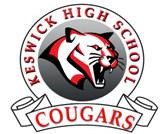The Geography Department at Keswick High School inspires students to explore the world around them—its landscapes, people, and the complex relationships that connect them. Through inquiry-based learning, students develop a deeper understanding of both the local and global forces that shape our environment, societies, and future.
Our geography courses encourage students to think critically about issues such as climate change, sustainability, urban development, global inequality, and resource management. Using technology, spatial analysis, and real-world case studies, students learn to interpret data, make informed decisions, and consider multiple perspectives when tackling environmental and social challenges.
| Staff Name |
|---|
| S. Caravasilis (Interim DH) |
| R. Fuller |
| D. Pearson |
Future Careers
Cultural and human geography : aspects of geography that relate to different cultures (ie: cultural origins and movement). Historical geography: recreating the geography of past times and protecting historical landscapes and structures. Economic geography: location and distribution of economic activity.
- Location analyst
- Market researcher
- Medical geographer
- Map librarian
- Historic preservationist
- Political analyst
- Urban planner
- Real estate developer
- Demographer
- Travel/tourism planning
- Community developer
- Municipal advisor
Examine distribution of the Earth’s surface features and analyze the processes that create and shape landforms. May include working with environmental concerns and/or studying the impact of natural hazards such as hurricanes, tornadoes, volcanic eruptions and earthquakes:
- Hydrologist
- Resource management specialist
- Outdoor guide
- Soil conservationist
- Pollution control consultant
- Ecologist
- Geologist
- Climatologist
- Habitat researcher
- Atmospheric data technician
Use computers to generate maps and store map-related information. May be applied to problem solving in industry, agriculture, weather, military, government, land use and other related areas.
- Cartographer
- Remote-sensing analyst
- Map curator
- GIS/GPS analyst
- Field surveyor
- Computer mapping and software developer
- Map interpreter
- Aerial photo analyst
- Spatial data analyst
Concerned with how human beings use the earth. Focus on human impact on the environment (population growth, food supply, water quality):
- Conservationist
- Outdoor recreation management
- Waste management
- Forestry technician
- Hazardous waste planner
- Ecotourism planner
- Wetlands conservation supervisor
- Conservation education coordinator
- Environmental impact assessment
- Recycling coordinator
- Forestry, mining, environmental issues, waste management, architecture or surveying companies
- Insurance, communications, international trade, transportation
- Private industry including utilities, construction, energy, environmental planning
- Government agencies, NGOs (non-governmental organizations)
- Consulting firms
- Real estate developers
- Scientific or research groups
- Museums
- Market research organizations
- Boards of education/universities/colleges
- Outdoor recreation companies
- Magazines/newspapers
- NGO’s
- Using specialized field equipment, satellite imagery and state of the art software
- Project design/planning
- Interview skills
- Gathering and organizing data
- Analyzing data
- Summarizing results
- Surveying and sampling
- Computer modeling
- Using statistical applications
- Reading/constructing graphs/maps
- Communicating across cultures
- Conducting field studies
- Maintaining records
